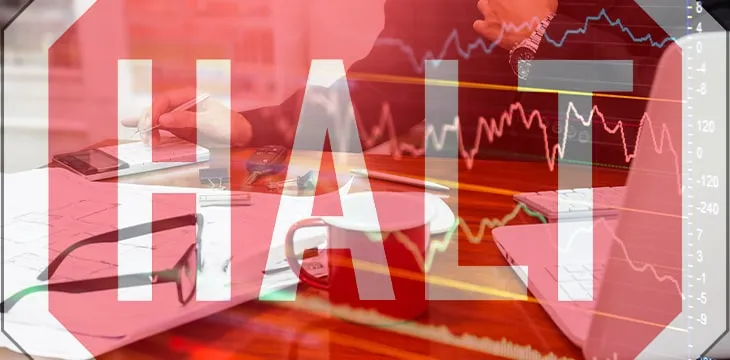|
Getting your Trinity Audio player ready...
|
Digital currency investing platform Abra is hit with a $300,000 fine after U.S. regulators Securities and Exchange Commission (SEC) and the Commodities Futures Trading Commission (CFTC) pressed charges against the financial app and its international partner company Plutus Financial Inc.
In a press release, the SEC said Abra is charged with “offering and selling security-based swaps to retail investors without registration and for failing to transact those swaps on a registered national exchange.”
The CFTC also charged Abra with “entering into illegal off-exchange swaps in digital assets and foreign currency with U.S. and overseas customers and registration violations.”
Abra has settled with both agencies for a total of $300,000—$150,000 to each government agency—and did so without confirming or denying the alleged charges.
What did Abra do?
In February 2019, Abra launched a service that allowed individuals to gain “synthetic exposure to price movements of stocks and exchange-traded fund (ETF) shares trading in the U.S.”
After receiving a warning from the SEC shortly after launching this service, Abra halted the service. Three months later, Abra re-launched the service; however, this time around, they did not offer it to individuals located in the United States.
Regardless of only making the service available outside of the U.S., Abra employees in California designed, marketed, screened, and approved users who would be allowed to buy the swap contracts. This was enough evidence for the SEC and CFTC to decide that Abra was offering and selling security-based swaps to retail investors without registration and that they failed to transact those swaps on a registered national exchange.
“Businesses cannot ignore the registration requirements designed to provide investors with the information necessary to evaluate securities transactions,” said Daniel Michael, Chief of the SEC Enforcement Division’s Complex Financial Instruments Unit. “Further, businesses that structure and effect security-based swaps may not evade the federal securities laws merely by transacting primarily with non-U.S. retail investors and setting up a foreign entity to act as a counterparty, while conducting crucial parts of their business in the United States.”

 06-06-2025
06-06-2025 





